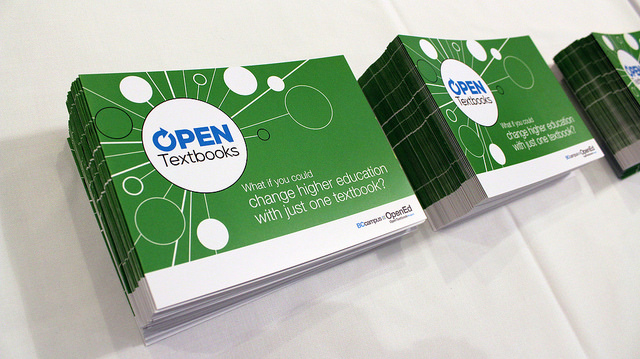The findings in this report provide a snapshot of the B.C. post-secondary system as a whole, we also explore similarities and differences in OER use among faculty across the three institution types in British Columbia: research-intensive universities, teaching-intensive universities, and colleges/institutes.

Led by the 2014/15 B.C. Open Textbook Faculty Fellows, Rajiv S. Jhangiani, KPU, Christina Hendricks, UBC and Jessie Key, VIU, and in collaboration with Rebecca Pitt, OER Hub and Clint Lalonde, BCcampus, this report examines the use of Open Educational Resources (OER) by faculty in B.C. post-secondary institutions, including their motivations and perceptions, as well as what factors help to enable or act as challenges for OER use and adaptation.
Within this report, you’ll find the answers to these three questions:
- How do faculty in British Columbia use Open Educational Resources (OER)?
- What are some of the ways in which they are using OER?
- What are some of the barriers they face when using OER?
In the report, there are 11 key findings, but here’s a sneak peek at 5 of them:
- While faculty at all three institutional types (research-intensive universities, teaching-intensive universities, and colleges/institutes) reported similar adoption patterns of OER, faculty at research-intensive universities were more likely to adapt and create OER than faculty at teaching-intensive universities or colleges/institutes.
- Faculty who score higher on the personality trait of openness (to experience) were more likely to both adapt and create OER.
- Regardless of institutional type, the top three reasons faculty reported for using OER were for ideas and inspiration, to supplement existing coursework, and to prepare for teaching.
- The most frequently used types of OER were videos, images, and open textbooks.
- A majority of faculty perceive OER to be comparable or superior in quality to traditional, proprietary materials; however, faculty who have adopted OER rate the quality of OER significantly higher than those who have not adopted OER.
Download the full report to find out more information and to see the other 6 findings PDF | Word | B.C. faculty use of OER – Survey questions (CC-BY)
In addition to the 11 key findings, the research makes a number of recommendations aimed at senior institutional administrators on how to support faculty wishing to use OER in their teaching and learning practices, and also investigates the relationships between faculty use of OER and institutional policies, the tendency to share teaching materials, and the personality trait of openness.
Learn more:
- B.C. faculty use of OER White Paper Report: PDF | Word
- Survey questions (CC-BY)
- OER Hub
- B.C. Open Textbook Project
- Faculty Fellows 2014-2015 Year in Review
Join us at an upcoming event:
-
Facilitator Development Online (FDO) – March 28 – April 29, 2016
-
Open Education Week 2016 – MARCH 7 – 11, 2016
Stay Informed with BCcampus – sign up for our newsletter, check the calendar, or follow @BCcampus
